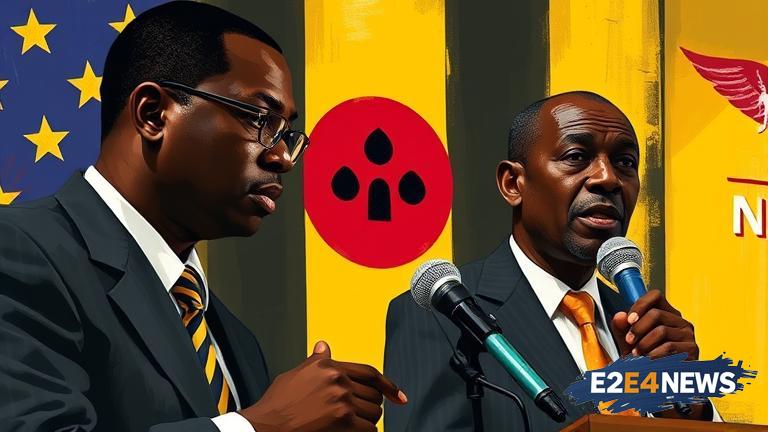The recent agreement between the Ugandan government and the United States to receive deportees has sparked controversy among opposition leaders in the country. The deal, which was announced earlier this month, would allow the US to deport individuals to Uganda who are not citizens of the country. Opposition figures are expressing concerns that the agreement could lead to human rights abuses and persecution of those who are deported. They argue that the Ugandan government has a history of suppressing dissent and opposition, and that those who are deported could face serious risks to their safety and well-being. The opposition leaders are also questioning the terms of the deal, including the criteria for determining who will be deported and the procedures for ensuring the safety and dignity of those who are returned. Some have also raised concerns about the potential for the deal to be used as a tool for political repression, with the government using it to silence opponents and critics. The Ugandan government has defended the deal, saying that it is necessary to address the issue of irregular migration and to protect the country’s national security. However, the opposition leaders are not convinced, and are calling for greater transparency and accountability in the implementation of the agreement. They are also urging the international community to pay close attention to the situation and to hold the Ugandan government accountable for any human rights abuses that may occur. The controversy over the deportation deal is just the latest example of the tensions between the Ugandan government and the opposition, which have been simmering for years. The opposition has long accused the government of suppressing dissent and opposition, and of using violence and intimidation to maintain its power. The government, on the other hand, has accused the opposition of trying to destabilize the country and of promoting violence and chaos. The situation is complex and multifaceted, with deep-seated historical, cultural, and political factors at play. The international community has a critical role to play in promoting human rights and democracy in Uganda, and in holding the government accountable for its actions. The US, in particular, has a responsibility to ensure that its actions do not contribute to human rights abuses or persecution in Uganda. The deportation deal is just one example of the many challenges facing Uganda, a country that has struggled with poverty, inequality, and political instability for decades. Despite these challenges, Uganda has made significant progress in recent years, with economic growth and development accelerating and living standards improving. However, the country still faces many obstacles, including corruption, poor governance, and a lack of accountability. The opposition leaders are calling for greater transparency and accountability in government, as well as for reforms to address the root causes of poverty and inequality. They are also urging the international community to provide support and assistance to help Uganda address its challenges and promote human rights and democracy. The situation in Uganda is a reminder of the importance of promoting human rights and democracy around the world, and of the need for international cooperation and solidarity in the face of challenges and crises. The US and other countries have a critical role to play in promoting human rights and democracy in Uganda, and in holding the government accountable for its actions. The deportation deal is just one example of the many challenges facing Uganda, and it highlights the need for greater transparency, accountability, and cooperation between governments and civil society. The opposition leaders are committed to promoting human rights and democracy in Uganda, and to holding the government accountable for its actions. They are urging the international community to join them in this effort, and to provide support and assistance to help Uganda address its challenges and promote human rights and democracy. The situation in Uganda is complex and multifaceted, and it requires a comprehensive and nuanced approach. The international community must work together to promote human rights and democracy in Uganda, and to hold the government accountable for its actions. The deportation deal is just one example of the many challenges facing Uganda, and it highlights the need for greater transparency, accountability, and cooperation between governments and civil society.
